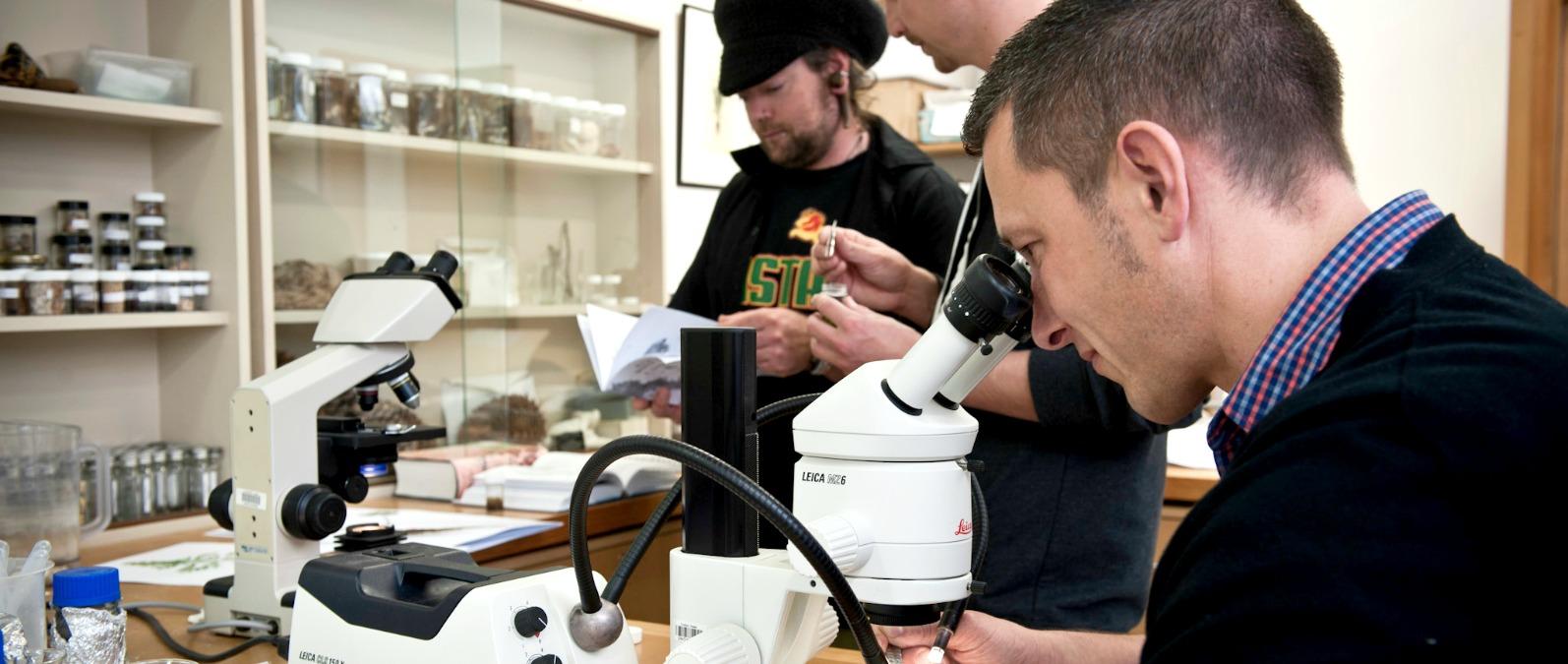Programme overview
Animal behaviour and welfare is a rapidly growing field of study and work. If you're keen to get stuck right away, this unique programme could be the next step you need to take in your career.
In it, you'll develop in-depth knowledge and understanding of animal behaviour modification, health and welfare, handling and husbandry, conservation, and human/animal interactions.
Highlights
- A holistic approach that combines theoretical knowledge with practical skills to evaluate the welfare, behaviour, and training needs of wild, exotic, and companion animals
- Practical experience in simulated and real-world situations
- Visits to various animal welfare organisations and voluntary groups; you may even be able to undertake part of your studies at one of their sites
- A chance to complete a research project in an area of your interest to develop the skills you'll need for a career in your chosen field
- Relevant and current teaching: our lecturers keep up with industry trends through links with zoos in Auckland, Hamilton, Wellington, and Christchurch, the Department of Conservation, MPI (Ministry of Primary Industries) Biosecurity, and the SPCA
- A teaching team of highly qualified and experienced animal behaviour experts, animal trainers, animal welfare scientists, and veterinarians
Double major
Can't decide between animals or the environment? Study a double major, and you'll get the best of both worlds with a selection of animal- and environment-related courses.
Studying for a double major is highly recommended. Double majors further grow your knowledge and capabilities, making you more employable and competitive in the job market.
Where from here
Applied Molecular Solutions Laboratory
If you’re interested in the genetics of animals, plants and fungi, this lab is fully equipped for DNA extraction and analysis.
One day you might learn about playful ways to feed a rabbit, or find out what's involved with a guinea pig's routine health check. You might also use the facility to undertake behaviour-based research projects like food preference testing with a blue-tongue skink.
Then there's the added benefit of being able to pet cute animals on your lunchbreak - something the animals enjoy just as much as you will.

Admission requirements
What you will need to study this programme.
Domestic students
International students
Academic requirements
As a part of this requirement, you must be at least 16 years of age and meet one of the below;
- All applicants must be at least 16 years of age when they begin their studies, and they should meet the country-specific admission requirement;
And English entry requirements;
If English is not your first language, you will also need at least one of the following qualifications:
- Evidence of an IELTS (Academic) band score of at least 6 with no band score lower than 5.5
- University Entrance Literacy: 8 credits at Level 2 or above in English or Māori (4 in Reading, 4 in Writing); or
- Evidence of English language proficiency as outlined in the NZQA Rules on the Unitec English Language Requirements for International Students Web-page.
Don’t meet these Academic requirements?
- If you don’t meet the academic criteria, our Bridging Education Programmes can help you qualify. Apply online, and we’ll discuss your next steps.
- If you don’t meet the above criteria, special or discretionary admission may apply; your eligibility will be determined at the interview.
For more information, download the programme regulations (PDF 493 KB)
Courses and timetables
For more details on the courses including timetables, please click on the course names below.
| Courses | Credits | Aim |
|---|---|---|
| Diversity of Life: Animals (NSCI5103) | 15 credits (0.125 EFTS) | To develop an understanding of the basis of the taxonomic classification of the major animal groups, their phylogenetic relationships and how different animal forms have adapted to different ways of living. |
| Principles of Biology (NSCI5104) | 15.0 credits (0.125 EFTS) | To develop an understanding of the underlying chemical and physical processes which serve to promote and enable order in biological systems. |
| Introduction to Animal Behaviour and Welfare (NSCI5702) | 15 credits (0.125 EFTS) | To promote an understanding of the basic principles of animal behaviour and welfare as it applies to a range of animal species. |
| Earth Processes (NSCI5730) | 15 credits (0.125 EFTS) | To provide a scientific understanding of physical and chemical processes and their interactions which are essential to life on Earth. |
| Principles of Ecology (NSCI5731) | 15 credits (0.125 EFTS) | To develop an understanding of the interactions that occur between organisms and their environment. |
| Contemporary Issues in Biology (NSCI5734) | 15.0 credits (0.125 EFTS) | To enable students to research contemporary issues in biological sciences and thereby facilitate the acquisition of fundamental academic skills that support studies in the Bachelor of Applied Science. |
| Science and Society (NSCI5735) | 15 credits (0.125 EFTS) | To explore ways in which Science and human society have developed and interacted throughout history; to equip students with an appreciation that science takes place within a broad cultural framework and to recognise the validity of differing points of view. |
| Principles of Animal Husbandry (NSCI5738) | 15.0 credits (0.125 EFTS) | To enable the student to develop an understanding of the theoretical basis and application of animal husbandry in a range of animal species. |



